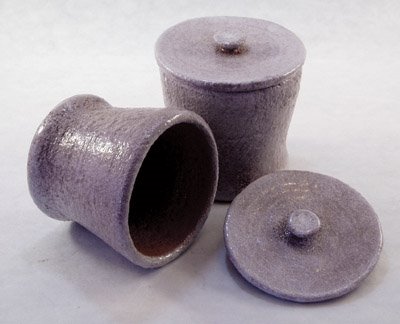![Working at home on a 3D scanning project [Source: Artec 3D]](https://fabbaloo.com/wp-content/uploads/2020/05/image-asset_img_5eb067debba3e.jpg)
Working at home on a 3D scanning project [Source: Artec 3D]
With the worldwide lockdown, most people have to work a bit differently, and 3D print companies are no exception.
Working at Home on 3D
For those of us who normally work from home, including the Fabbaloo team, there is relatively little change in daily routines. However, for others the change is significant and sometimes creates impossible conditions for effective work.
Working from home is also a very new concept to some people. Many are used to the social aspects of working close to others and the current protocols force people into uncomfortable and alien working environments.
Even worse, some organizations were not prepared for remote workers; secure virtual networks may not have been in place, laptops were not available to workers and other problems. Companies have been resorting to unusual maneuvers to get things done; I understand at least one company has set up “Drive Through WiFi”, where workers can come by only once a day to download emails during a maximum five-minute WiFi session.
3D Software Licensing Issues
But in spite of even having a proper remote work infrastructure and protocol, there are some barriers created by 3D companies that prevent normal work from taking place remotely. One of these barriers is software licensing.
Some software systems are significantly expensive, and this is particular true within the 3D industry. In an effort to protect license revenues, software makers often use strict protocols to ensure the running instance is an authorized copy of the software. This normally prevents copying, as some unscrupulous organizations might replicate the software across their entire workforce for free.
But now these licensing regimes are a problem, because while the worker is successfully set up at a home office, the official software license is for a workstation that’s at the now-closed company office.
3D Printing Company Actions
There’s at least one 3D company that’s realized this is an issue and has taken action. Artec 3D, the maker of a line of high-quality 3D scanners, has re-examined their licensing protocols in view of the crisis and come up with a simple and effective solution.
They explain:
“At Artec 3D, everyone who can work from home is working from home. And we know this is the case for many of you, too. While we hope your new work station provides all it can so your businesses and education can continue without disruption, we know there are some things that can’t be easily recreated at home – and we’re not just talking about your office coffee machine.
To help you replicate your office or school desk as closely as possible for the foreseeable future, we’re offering an extra Artec Studio WFH license to anyone who has an existing Artec Studio Professional license. This means even if you were using a shared license at work or school, you can now continue to use Artec Studio on your home computer as you complete existing work or start a new project.”
This is a brilliant idea that instantly solves a potentially major problem for many of their clients. While the physical scanner may be located at the office, this move allows operators to continue working on existing 3D scanning projects.
I’m wondering how many other 3D software tools fall into a similar scenario, where licenses are “in jail” during the crisis. Certainly there are many people with portable laptops that must be at the home office, but I suspect a large percentage of 3D software users have a powerful workstation at the office — with the license.
I’m hoping other providers of 3D software examine their licensing regimes and adapt them for at least a temporary period going forward.
Via Artec 3D

